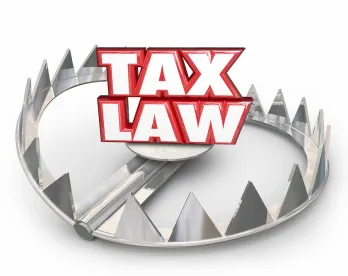Employment tax compliance and enforcement are among the highest priorities of the Department of Justice, the Internal Revenue Service and the U.S. Attorney's Office. These agencies work together to seek monetary judgments, permanent injunctions and criminal convictions. With the chief of the Criminal Investigation Division (CI) for the IRS announcing that CI is hiring additional special agents, criminal investigations of employment tax violations are likely to increase. Business owners with unpaid employment tax obligations need to take action now.
Employers have a legal responsibility to collect and pay to the IRS taxes withheld from the wages of employees. These taxes include federal income tax being withheld, and the employee's share of social security and Medicare tax. When employers willfully fail to collect, account for and pay these taxes to the IRS, the government takes the position that the employer is stealing from its employees and the U.S. Treasury. There are a number of employment tax evasion schemes that the IRS is investigating.
In its employment tax investigations, the IRS and the Department of Justice do not place a dollar threshold on the amount of unpaid employment taxes that could trigger more severe enforcement action. In the past, the IRS geared its investigations toward the more substantial employment tax liabilities. Those types of cases are still prevalent, as can be seen in the indictment for employment tax fraud of a Detroit restaurant owner last year for the accrual of more than $1 million in employment tax liabilities.
In contrast, the recent plea of David Monhollon - a business owner who failed to pay employment taxes of $68,261 accrued over seven tax quarters - puts employers and business owners that owe less than $100,000 in employment tax debt in the precarious position of potentially being investigated by the IRS for employment tax fraud. In addition to the low amount involved, there are other aspects of the Monhollon case that stand out. First, the indictment is lacking in the typical allegations of tax fraud or tax evasion. There appear to be no assertions of overt acts (such as hiding assets. making false statements or providing false documents). In addition, there are no allegations that Monhollon lived a lavish lifestyle during the periods at issue.
As can be seen in the Monhollon case, the IRS and the Department of Justice are sending a clear message that the failure to collect, account for and pay employment taxes will not be tolerated.




 />i
/>i

